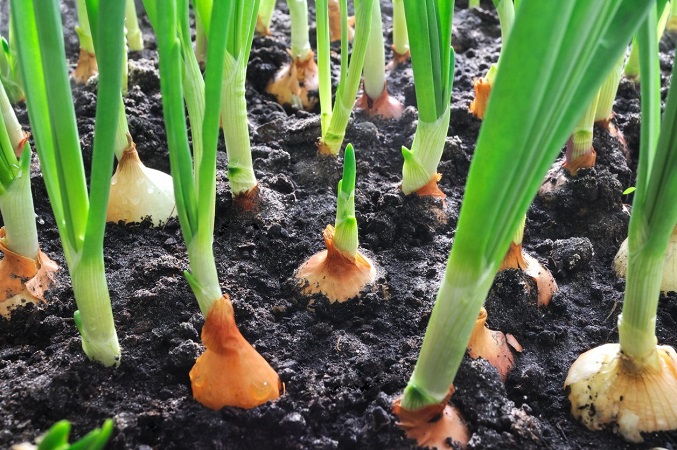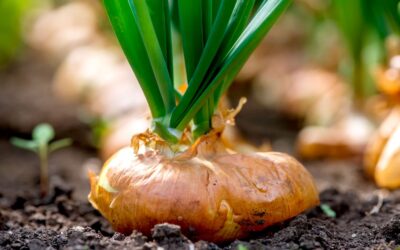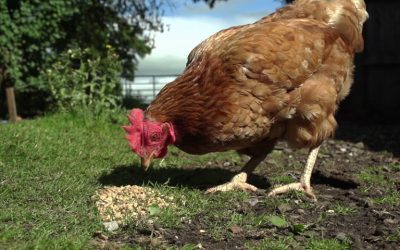Soil amendments for Onion growing

Like all annual bulbs, onions (Allium spp.) are heavy phosphorous feeders and prefer soil amendments that are low in nitrogen and high in phosphorous, such as bone meal and rock phosphate. Onions also grow better in loose, loamy soil rather than heavy clay, so well-rotted compost is another good addition to an onion bed.
Fertilizer
When planting onions, loosen the soil to a depth of 12 inches and add 1 to 2 inches of compost. You can also add a dry fertilizer at this time. Commercial fertilizers list three numbers on the side of the package: the first number is the amount of nitrogen, the second is phosphorous and the third is potassium. If you are using 5-10-10 fertilizer, add 4 cups for every 5 feet of onions planted. For 8-16-16 fertilizer, add 1/2 cup per 5 feet, and for 10-10-10 add 1/4 cup.
Bone Meal
Bone meal is a natural soil amendment made from the steamed and ground up bones of animals. The amount of phosphorous in bone meal can range from 10 to 13 percent. Bone meal also has some nitrogen. Bone meal works well for all types of bulbs, including onions. Bone meal works more slowly than synthetic fertilizers, but it is considered organic and it is the most economical of the phosphorous-rich soil amendments. Add 7 cups of bone meal per 100 square feet of garden space.
Rock Phosphate
Phosphorous is also available in the form of rock phosphate and colloidal phosphate. These soil amendments can be hard to find and expensive to use. Colloidal phosphate particles are small and difficult to apply to the garden, so rock phosphate, also known as rock dust, is a better choice. Apply 10 to 15 pounds of rock phosphate per 100 square feet of garden every three to five years.
Easy on the Nitrogen
Onions need some nitrogen, but not too much. You can side dress the onion plants with 1 or 2 inches of compost when they have leaves, but do it while the leaves are green before they begin to die back and form bulbs. Too much nitrogen too late in the season can cause deformed bulbs.
Onions Like Loose Soil
You can add all the phosphorous you want, but if your soil is too heavy, it won’t grow nice onions. Onions thrive in loose, light, loamy soil. Heavy clay makes them work too hard to form bulbs and stunts their growth. To improve the structure of your soil, spread 1 to 2 feet of ground leaves onto your garden bed in fall and work them into the soil to make it looser.

